
Louth County Council EU_SHAFE Report on Ageism
The challenges faced by older people were highlighted in the EU_SHAFE Project Report on Ageism, which was launched by Louth County Council at an event in the Ar...
According to World Health Organization (WHO) "making cities and communities age-friendly is one of the most effective local policy approaches for responding to demographic change”. However, regional initiatives still lack alignment between absolutely complementary policy areas such as health, social affairs, territorial sustainable development, employment and wellbeing. This silo approach restrains the creation, availability and large-scale adoption of age-friendly solutions across Europe. Known is also the gap between technological developments and end-users real needs and expectations. Therefore, policy alignment, collaborative efforts and sharing of good practices will be keystones to add better quality of life, more inclusive and sustainable health and social care systems and citizen’s access to the services.
The EU_SHAFE project will improve policies and practices in 7 European regions by developing a comprehensive approach to Smart Healthy Age-Friendly Environments (SHAFE). Through a 'learning by sharing' methodology, this robust multi-disciplinary and intersectoral consortium will build a four-helix European community to exchange experiences and practices to improve multilevel policy instruments. The consortium will create a cooperative, inclusive ecosystem between public authorities, European networks and user’s associations, embedding their experience and skills with research & design knowledge from academia and SMEs for the growth of community-based services and “ageing at home” around Europe.
• EU_SHAFE will Invest in policy design and adaptation of regional instruments derived from ETCF (R&I priorities) and ESF (Social Inclusion), through the creation of a large Euro-local network of stakeholders that will work together in ecosystems towards a common model – a White Paper on SHAFE.
• Select and re-design concrete and scalable interventions in the area of social innovation for SHAFE, that may be implemented as realistic innovative models for the future.
€1,500,110.00
Research and innovation
The Centro 2020 Regional Operational Programme (ROP) is the main funding instrument available to the region for the implementation of its development strategy in the period 2014-2020. ROP Centro has available about €2,155m from EU funds: €1,751m (ERDF) and €404m (European Social Fund).
The use of European funds under the ROP Centro 2020 will be geared primarily to strengthening the competitiveness of the companies based in the region and job creation. It will also be given particular emphasis on the efficient use of resources and the social inclusion of disadvantaged people.
10 strategic priorities have been established within the programme. EU_SHAFE intends to approach:
- AXIS 1 Research, Development and Innovation - IDEAS (€169m) - Business investment in innovation and research and synergies between companies, R & D centers and higher education in networks and clusters through intelligent specialization
- AXIS 5 Strengthen Social and Territorial Cohesion - APPROACH and CONVERGE (€155m) – specifically in investments in health and social infrastructures.
These two axis are both contributing for the implementation of SHAFE but in need of more articulation in terms of transversal initiatives and funding, also with RIS3 platforms. In this sense, the main aim is to articulate these two axes with platforms 3 (quality of life technology) and 4 (territorial innovation) aiming at changing their framework and allowing the launch of new calls / initiatives to be funded around SHAFE.
The welfare technology program statement was adopted by the parties to the Aarhus municipality's budget agreement for 2013-2016. The text is contained in "Conciliation on the 2013 2013-2016 - Reinforced and Strengthened Out of the crisis", September 21, 2012. Welfare technology can increase citizens' safety, security and the ability to handle daily chores and mobility inside and outside the home. Welfare technology thus increases self-reliance and better quality of life for the primary target groups like older people, chroniclers and citizens with disabilities.
The purpose of the welfare technology development fund is to spread the use of technological solutions across the municipal organizations, for the benefit of both citizens and enterprises. The fund finances or co-finances concrete welfare technology demonstration, test, development and implementation projects and strategic efforts. The purpose is to investigate the potentials and gains of a particular technological solution and assess whether it makes sense to introduce the solution on a large scale.
However, the priorities associated to Health and building environments are separate from here and individually addressed. Therefore, the main improvement to deliver will be to understand the better mechanism to promote an integrative approach on Smart Healthy Age-Friendly Environments that can be reflected on policy recommendations and even reshaping this policy instrument.
Operational Programme for the Implementation of the EU Cohesion Policy has three main overall aims:
1) finding way to economic recovery and breaking the trend of Slovenia's moving away from the average EU development level;
2) Ensuring prosperity for all citizens;
3) Putting a decisive stop to passive, cyclical changes by transforming them into lasting structural improvements.
It has several priority axes. In the project, the focus will be on one priority axe: “Social inclusion and poverty reduction."
Each priority axe has several specific objectives. The aim in SHAFE will be to influence the specific objective: “improved economic and social inclusion in areas of local action groups (LAGs)”.
The major challenge that aims to be addressed by improving the policy instrument on the area of SHAFE is the fast growing problem of demography change. The trend is that the demography change problem will be in the first place addressed mainly in urban areas and later in rural areas in Lijita region. With SHAFE there is the possibility to collect lessons learned for Regions which are more developed in this subject and therefore start addressing these major challenges in advance.
Basque Country ERDF Regional Operational Programme 2014-2020 aims to boost sustainable economic growth in the region by creating quality jobs - especially in activities with high added value sectors, and improving the competitiveness of the regional economy through 'smart' and innovative growth initiatives.
The ERDF OP is aligned with the Europe 2020 strategy and the Basque Regional Innovation Strategy (RIS3). The area of health, and especially the field of Active Ageing and Healthy living, is among the highest priorities for the region.
The Programme focuses on six main areas, of which two of them are particularly relevant for the implementation of this action:
- Strengthening research, technological development and innovation. The investment is targeted at enhancing research and innovation infrastructures and capacities as well as developing the links and synergies with enterprises, research centres, and high education, in line with the RIS3.
- Enhancing access to, and use and quality of information and communication technologies. In the development of ICT products and services, e-commerce and enhancing demand for ICT, as well as strengthening ICT applications for e-government.
It is also relevant to mention the ESF Operational Programme of the Basque Country being one of its objectives Fostering Social Inclusion and Fighting against Poverty and any Discrimination to promote active inclusion.
The OP sets, as one of the two main priorities, the strengthening of research, development and innovation. It has a comprehensive approach, as it aims at supporting them in all sectors and in diverse ways, improving the related infrastructures, promoting private investments, enhancing exchange between economy and science, providing valid financial options for young innovative enterprises. Within this priority framework and because of the current local population structure, the Hamburg Ministry of Health and Consumer Protection (BGV) recognizes the need to use innovation and research to face the different dimensions of demographic change and to develop effective financial models to support investment and project development in this field. The ministry would like to use the INTERREG opportunity to work on a new more effective, more integrated, more result-oriented project framework, which will increase the quantity and the quality of the local projects and initiatives related to demographic change adaptions. The BGV would like to develop triple helix synergies, involving in the policy design process from the beginning universities and businesses (preferably with young entrepreneurs and local SMEs), who are the actors that should initiate and promote new projects in this field, enabling co-design for the draft of a new regulatory framework and creating new project development opportunities for these targets group actions while identifying new demographic change related issues.
The POR CAMPANIA FESR 2014-2020 is the programming document of the Region that constitutes the reference framework for the use of the European Regional Development Fund (ERDF) resources to guarantee the full convergence of Campania to European development strategies. The Program defines the strategy for regional growth by identifying 11 priority areas, being relevant:
Enhancing and promoting R&I:514M€
Improving and extending access to ICT:349M€
Promoting social inclusion:152M€
Promoting urban development:286 M€
Campania has outlined its regional strategy in 3 lines of intervention, with 2 relevant to SHAFE:
- development of innovation with actions to strengthen the public / private research and competitiveness support system by overcoming the critical factors of entrepreneurial development;
- constitution of a welfare system oriented towards inclusion and participation, raising the level of quality of life through the reorganization of the health system, the development and promotion of personalized services, actions that promote employment, social inclusion and education.
These strategic lines need to be implemented in accordance with specific programmatic requirements, articulating also with RIS3. The articulation between different axis and objectives relevant top the implementation of SHAFE is the main challenge to be addressed in the project and the expectation is that the interregional exchange may provide the best instruments to respond to this structural need.
The ERDF aims to strengthen economic and social cohesion in the European Union by correcting imbalances between its regions. seeks to contribute to the Union’s strategy for smart, sustainable and inclusive growth in an effort to address regional imbalances. The third Regional Operational Programme (ROP) for the Border, Midland and Western (BMW) Region is a funding package of €320 million from the European Regional Development Fund (ERDF) and the Irish exchequer and invested in the region between 2014 and 2020.
EU legislation sets out the objectives for the ERDF and has identified 11 Thematic Objectives to facilitate Member States in adopting a common approach to the design of their Regional Operational Programmes. As the BMW Region is classified as a ‘more developed’ region the regulation prescribes that at least 80% of the ERDF allocation has to focus on the first four Thematic Objectives, therefore the BMW Regional Operational Programme focuses on a limited number of priorities.
The total fund is €320 million which is 50% co-funded by the ERDF. The relevant priorities for SHAFE are (total 222M€):
Strengthening Research, Technological Development & Innovation in the BMW Region
Enhancing access to, and use and quality of ICT
Sustainable Urban Development
The need of improvement is to align these priorities specific mechanisms with Louth County strategy for the implementation aof Age-Friendly Environments, with Health and Care provision, smart solutions and research activities

The challenges faced by older people were highlighted in the EU_SHAFE Project Report on Ageism, which was launched by Louth County Council at an event in the Ar...

Shared learning is one of the key elements of the EU SHAFE project to achieve its goal to improve policy and practice in seven European regions. During study vi...
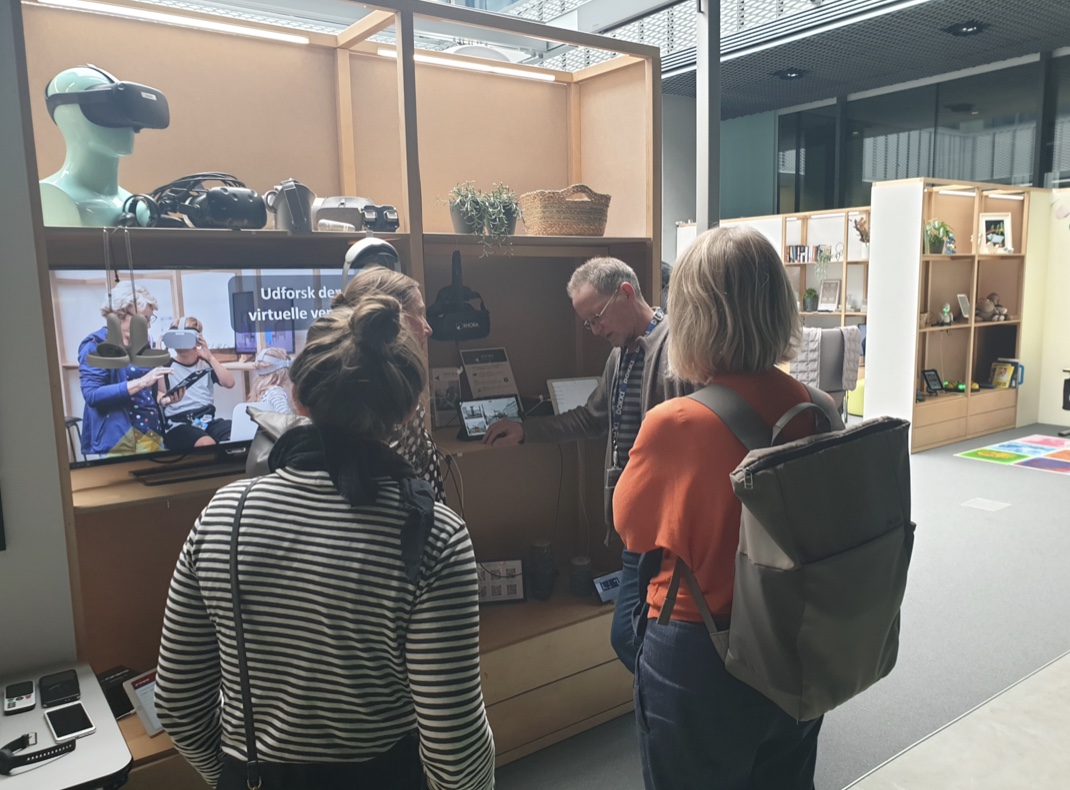
between Aarhus und Hamburg
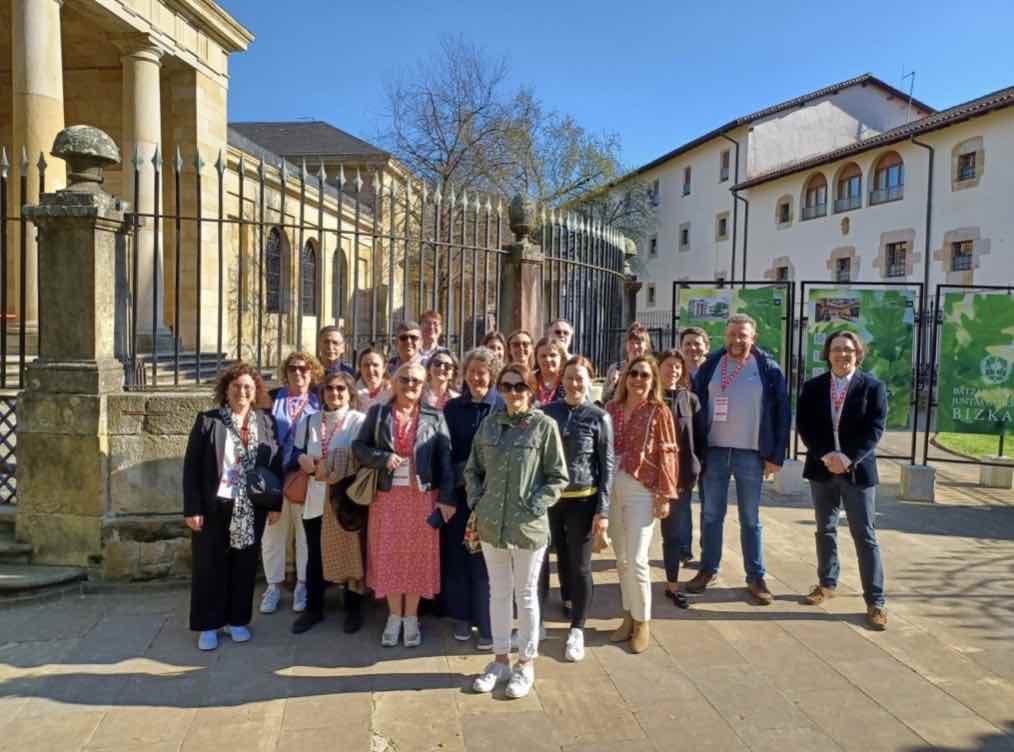
Press Release
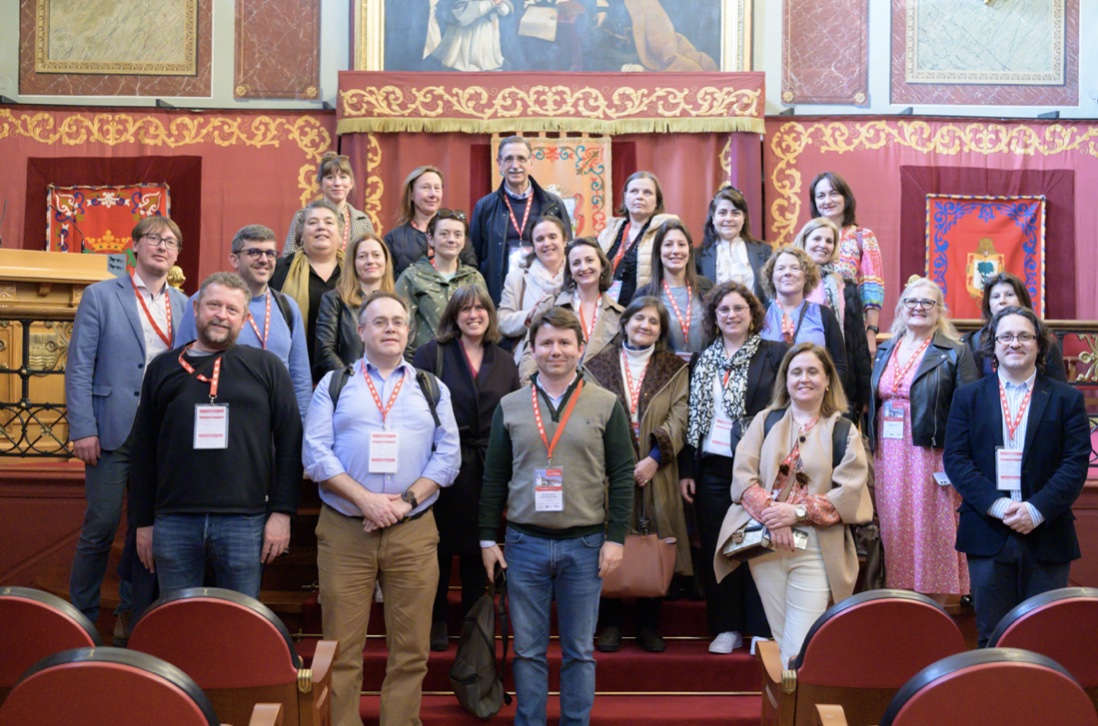
Good practices for a better quality of life for older people in Spain

Strengthening the health industry
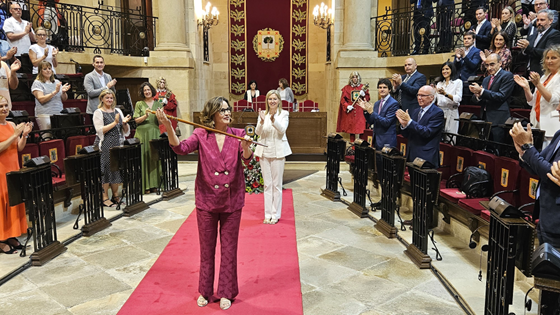
Elixabete Etxanobe, elected as new General Deputy of Bizkaia Provincial Council
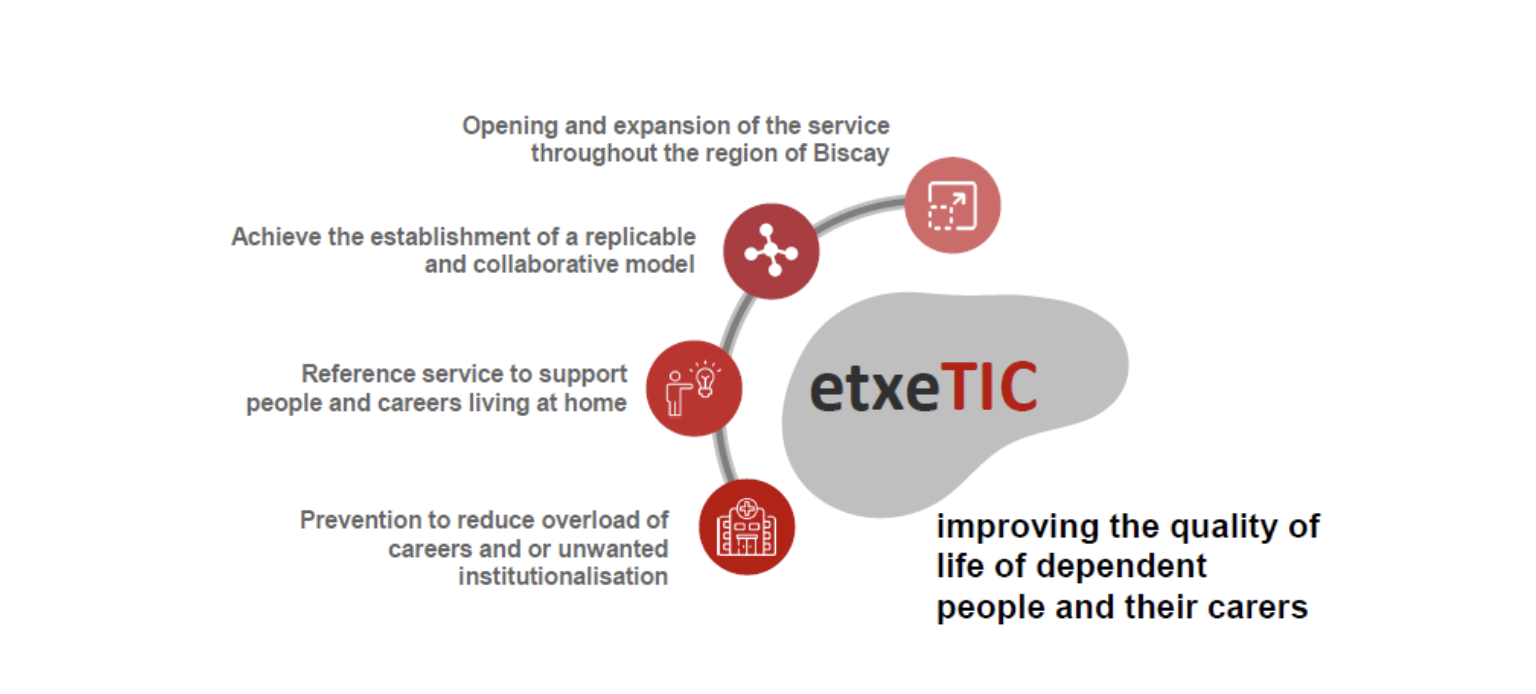
Staying at home Support Service: etxeTIC - Action Plan implementation update

Addressing Ageism in County Louth - Action Plan implementation update

Improved governance of PPI funds - Action Plan implementation update